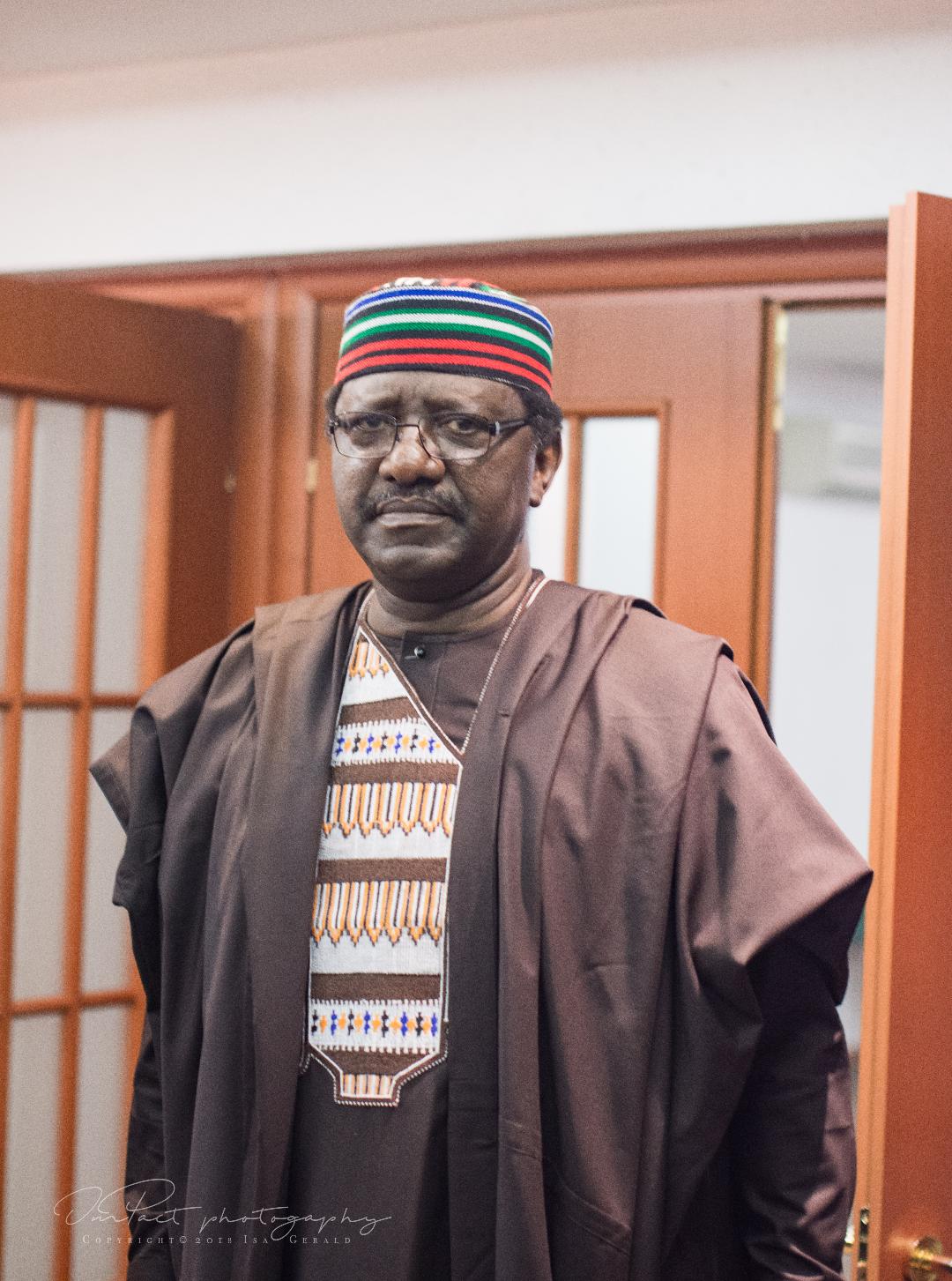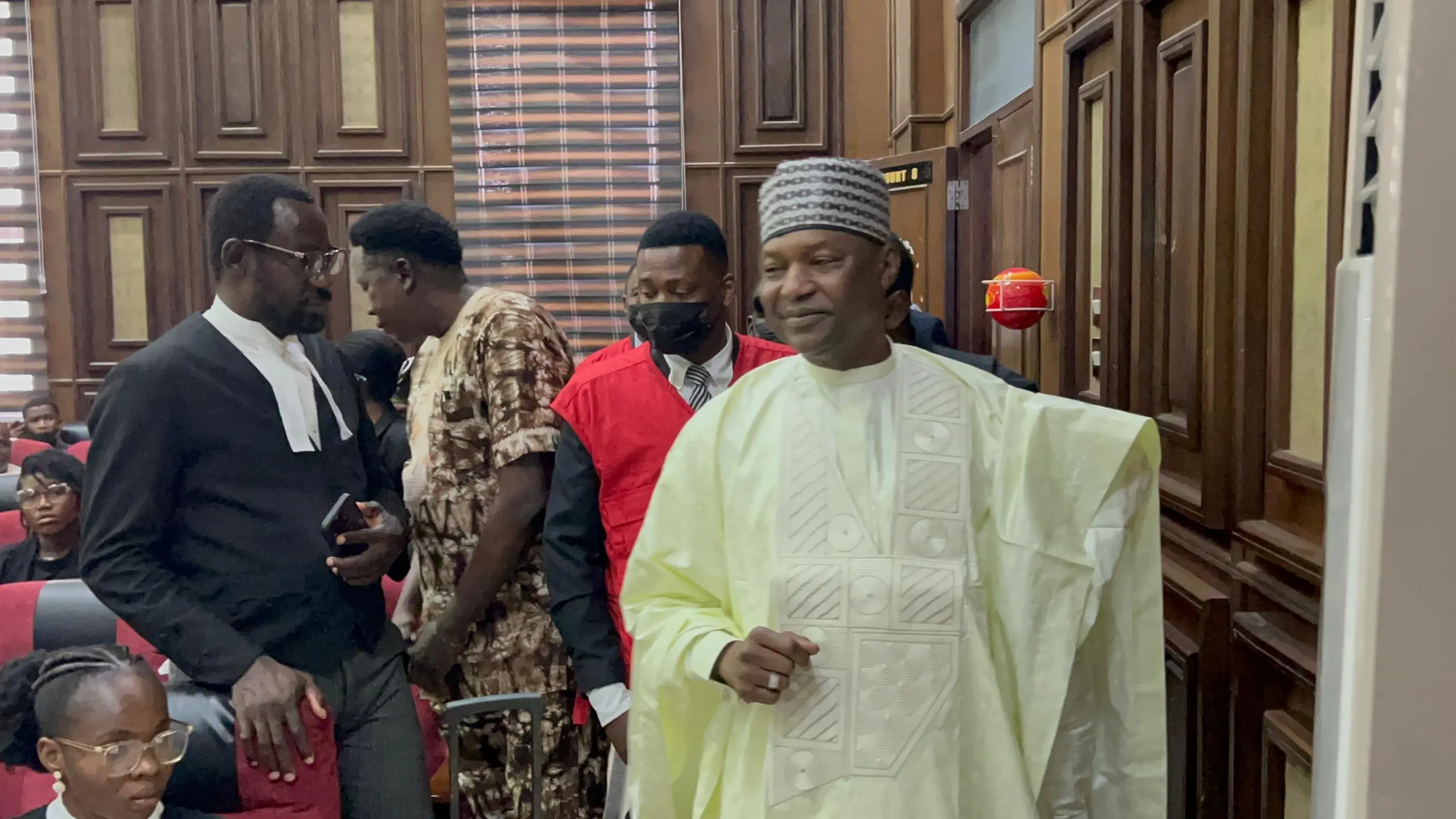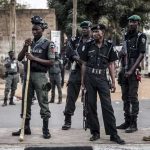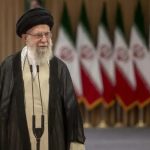General
Nigeria Outlines Strategies to Boost Economic Ties with Russia

By Kester Kenn Klomegah
Nigeria is an economic powerhouse in West African region. As it is publicly known, Nigeria is one of the Africa’s fastest growing economies and it boosts the largest population.
Under President Muhammadu Buhari, Nigeria has taken practical steps to continue bolstering economic and strategic ties with Russia.
Interestingly, Russia and Nigeria’s two-way trade remains minimal, far below expected level, given the fact that Russia is the biggest market in the Eurasian region and Nigeria the biggest market in Africa.
Relations between Nigeria and Russia can be traced back to the former Union of the Soviet of Social Republics era when diplomatic relations between the two countries were established. Since then, economic relations between both countries have steadily developed with a number of leading Russian companies establishing their presence in Nigeria. Russian investment in Nigeria covers such areas as energy, iron and steel, and hydrocarbon.
The Russian-Nigerian Business Council was also established to oversee economic activities between the two countries. It is also a platform for the two countries to sit down and draw up agreements and Memorandum of Understanding (MoU) on how to conduct effective businesses and investment in both countries.
Now, new hopes in Moscow and Abuja are that the countries’ annual commercial ties have to be increased rapidly to billions of dollars during the next few years. Russia plans to help Nigeria explore for oil and gas.
Furthermore, Russia has expressed deep interest in Nigeria, highly pledging to build nuclear power plants, petroleum pipelines, railways and infrastructure.
Kester Kenn Klomegah recently interviewed Professor Steve Ugbah, Nigerian Ambassador to the Russian Federation, who discussed the current Nigeria and Russia economic cooperation, ways to improve trade and other key foreign policy priorities.
In addition, Professor Ugbah shares hopes and optimism for the future relations between the two countries.
How do you see the economic relations developing currently between Russia and Nigeria?
The economic relations between Nigeria and Russia are not consistent with the long-standing cordial relations between both countries. This may be attributed to the apparent inadequate knowledge of the many investment opportunities in both countries. Nigeria is a vast market with huge potentials for prospective foreign investors and so is Russia. Regrettably, investors from both sides appear to know little or nothing about these opportunities.
However, in recent times, efforts have been made to improve the economic relations between both countries through rigorous sensitization interfaces and negotiations by the embassies of both countries. Since, my resumption of office as Nigerian Ambassador to the Russian Federation, I have held talks with several Russian companies who have demonstrated keen interest to invest in Nigeria, as well as resuscitating several abandoned economic projects.
I would like to add that, with our current sensitization drive on the economic potentials in both countries, there is an encouraging upsurge of interest that we have observed recently with an increasing number of interactions between private businesses in both countries. So given this development, I believe in a short time there will be tremendous improvement in the economic relations between both countries.
By the way, what are the Federal Government’s key priorities and expectations from the Russian Federation?
The priorities of the Federal Government of Nigeria from the Russian Government include the following: to promote mutually beneficial interests, particularly the promotion of friendly and cordial relations between the government and people of Nigeria and those of the Russian Federation; as well as to facilitate good socio-economic partnership and establish business ties that will be beneficial to both countries.
In addition, also a key component of Nigeria’s interest is to protect and promote the security and wellbeing of Nigerian citizens resident in the Russian Federation.
These priorities are pursued majorly through interactions at official levels between both governments and between the peoples of the two countries; exchange of official visits and cultural programmes and the signing of series of agreements including the Bilateral Education Agreement (BEA) which has brought many Nigerian students to various institutions in the Russian Federation.
What is the state of development regarding infrastructure projects already began by Russia, at least, a decade ago, in Nigeria?
There are two major infrastructural Russian projects in Nigeria: ALSCON and Ajaokuta Steel Plant. ALSCON has been resuscitated, while negotiations are ongoing to operationalize Ajaokuta Steel Plant.
Since the establishment of diplomatic relations with Soviet Union and now with Russia, trade figures have never balanced. What are your views about this trend and in what ways the trade imbalance could be reversed?
As I have stated earlier, the problem of low volume of trade and trade imbalance may be traced to the apparent poor or inadequate information on the vast investment opportunities in both countries. Concrete efforts have been made by the Embassy to increase awareness among Nigerian investors and their Russian counterparts on the many available investment opportunities.
I have held series of meetings with the Russian Chambers of Commerce and Industry, Russia-Nigerian Business Council and several companies and private owned business establishments here in the Russian Federation to promote economic partnership between both countries.
My duties as Nigerian Ambassador in the Russian Federation include: to deepen the existing cordial relations between our two friendly countries; to open Nigeria to Russian investors with regards to our vast business opportunities; and to expose investment openings in the Russian Federation to Nigerian investors.
In order to improve the trade imbalance, the Economic, Trade and Investment Section of the Embassy has been rigorously involved in educating and informing Nigerian investors of the investment opportunities in Russia, as well as providing necessary assistance they may require to invest in Russia.
In Nigeria, how do political elite and business people perceive the economic changes, and what they make out from the changes, emerging opportunities in Russia?
Economic changes are keenly observed by both, the political elite and business people, as it helps them to make informed decisions that would improve the state of the nation and business, respectively. Nigeria views Russia as a strategic partner therefore, efforts are being made to harness emerging opportunities in Russia by Nigeria.
Could you please give us your interpretation of future perspectives of the relations between Russia and Nigeria. How would you like to see the relations develop into the future?
Nigeria-Russia relations have come a long way since diplomatic ties were established between both countries, dating back to the Soviet Union Era. This can be seen in the different levels of cooperation between Nigeria and Russia. Worthy of mention in this regard is the diligent implementation of the Bilateral Education Agreement (BEA); Russia military assistance to end the Nigerian Civil War from 1967-1970; and, in recent times, military and technical assistance to help end the Boko Haram insurgency in the North East of Nigeria.
Recently, exchange of visits by senior public officials and private sector players from both sides have facilitated the prospects for even greater bilateral cooperation. I am hopeful that this cordiality will expand into various partnerships in different sectors that would be beneficial to both countries. Russia, as the successor state to the defunct USSR, is a strategic partner, with a lot of promise for greater mutually beneficial relations into the future.
General
NISO Attributes Electricity Woes to Inadequate Gas Supply

By Adedapo Adesanya
The Nigerian Independent System Operator (NISO) has attributed the poor power supply facing a considerable number of Nigerians to inadequate gas supply to thermal power plants.
Business Post reports that epileptic power supply has plagued consumers in Lagos, Oyo, Abuja, and Osun, among others, this month, leading to worries. Also, some businesses have recorded losses due to the epileptic power supply in their areas.
In a statement posted on its X handle, NISO disclosed that average available generation on the national grid currently stands at about 4,300 megawatts (MW), with the low output primarily attributed to gas supply constraints.
The system operator noted that thermal power plants, which account for the dominant share of Nigeria’s electricity generation mix, require an estimated 1,629.75 million standard cubic feet (MMSCF) of gas per day to operate at optimal capacity. However, as of February 23, 2026, actual gas supply to the plants was approximately 692.00 MMSCF per day.
The available supply represents less than 43 per cent of the daily gas requirement, resulting in constrained generation output and reduced electricity allocation to Distribution Companies (DisCos).
NISO, which independently manages the nation’s electricity grid, explained that any disruption or limitation in gas supply directly affects available generation capacity and overall grid output, given the heavy reliance on thermal plants.
It added that when total system generation drops significantly, the operator is compelled to implement load shedding across the network while dispatching available energy in line with allocation percentages approved under the Multi-Year Tariff Order (MYTO) framework of the Nigerian Electricity Regulatory Commission (NERC), to maintain grid stability and prevent system disturbances.
While expressing regret over the inconvenience to electricity consumers and market participants, NISO said it is working closely with relevant stakeholders to restore full energy allocation once gas supply improves and generation capacity returns to normal levels.
General
EFCC Re-Arraigns ex-AGF Malami, Wife, Son Over Alleged Money Laundering

By Adedapo Adesanya
The Economic and Financial Crimes Commission (EFCC) has re-arraigned former Attorney-General of the Federation (AGF), Mr Abubakar Malami (SAN), his wife, Mrs Asabe Bashir, and son, Mr Abdulaziz Malami, on money laundering charges.
They were brought before Justice Joyce Abdulmalik of the Federal High Court in Abuja, following the re-assignment of the case to the new trial judge.
Upon resumed hearing, EFCC’s lawyer, Mr Jibrin Okutepa (SAN), informed the court that the matter was scheduled for defendants’ re-arraignment.
“The matter is coming before your lordship this morning for the very first time. I will be applying for the plea of the defendants to be taken,” he said.
Mr Okutepa equally applied that the sums listed in Counts 11 and 12 be corrected to read N325 million instead of N325 billion for Count 11, and N120 million instead of N120 billion for Count 12.
When it was not opposed by the defence lawyer, Mr Joseph Daudu (SAN), Justice Abdulmalik granted the oral application by Mr Okutepa.
The defendants, however, pleaded not guilty to the 16 counts preferred against them by the anti-graft agency bordering on money laundering.
Justice Obiora Egwuatu had, on February 12, withdrawn from the case shortly after the civil case filed by the EFCC was brought to him.
The case was formerly before Justice Emeka Nwite, who sat as a vacation judge during the Christmas/New Year break.
After the vacation period, the CJ reassigned the cases to Justice Egwuatu, who had now recused himself, before it was reassigned to Justice Abdulmalik.
The former AGF, his wife, and son were earlier arraigned before Justice Nwite on December 30, 2025.
While Malami and his son were remanded at Kuje Correctional Centre, Asabe was remanded at Suleja Correctional Centre before they were admitted to N500 million bail each, on January 7, with two sureties each in the like sum.
General
INEC Shifts 2027 Presidential, N’Assembly Elections to January 16

By Adedapo Adesanya
Nigeria will hold next year’s presidential and National Assembly elections a month earlier than planned, after the Independent National Electoral Commission (INEC) revised the polling schedule.
The elections will be held on January 16, instead of the previously announced date of February 20, INEC said in an X post, signed by Mr Mohammed Kudu Haruna, National Commissioner and Chairman, Information and Voter Education Committee.
There were also changes to the Governorship and State Houses of Assembly elections initially fixed for Saturday, March 6 2027, in line with the Electoral Act, 2022, have now been moved to Saturday, February 6, 2027.
The electoral commission said the changes were caused by the enactment of the Electoral Act, 2026 and the repeal of the Electoral Act, 2022, which introduced adjustments to statutory timelines governing pre-election and electoral activities.
“The Commission reviewed and realigned the schedule to ensure compliance with the new legal framework,” it said.
INEC said party primaries (including resolution of disputes) will commence on April 23, 2026 and end on May 30, 2026, after which Presidential and National Assembly campaigns will begin on August 19, 2026, while Governorship and State Houses of Assembly campaigns will begin on September 9, 2026.
It noted that campaigns will end 24 hours before Election Day, and political parties have been advised to strictly adhere to the timelines.
INEC also stated it will enforce compliance with the law.
The electoral body also rescheduled the Osun Governorship election which was earlier scheduled for Saturday, August 8 2026, by a week to Saturday, August 15, 2026.
INEC noted that some activities regarding the Ekiti and Osun governorship elections have already been conducted, and the remaining activities will be implemented in accordance with the Electoral Act, 2026.
Speaking at a news briefing in Abuja two weeks ago, the chairman of INEC, Mr Joash Amupitan, expressed the readiness of the commission to conduct the polls next year.
The timetable issued by the organisation for the polls at the time came when the federal parliament had yet to transmit the amended electoral bill to President Bola Tinubu for assent.
Later that week, the Senate passed the electoral bill, reducing the notice of elections from 360 days to 180 days, while the transmission of results was mandated with a proviso.
-

 Feature/OPED6 years ago
Feature/OPED6 years agoDavos was Different this year
-
Travel/Tourism10 years ago
Lagos Seals Western Lodge Hotel In Ikorodu
-

 Showbiz3 years ago
Showbiz3 years agoEstranged Lover Releases Videos of Empress Njamah Bathing
-

 Banking8 years ago
Banking8 years agoSort Codes of GTBank Branches in Nigeria
-

 Economy3 years ago
Economy3 years agoSubsidy Removal: CNG at N130 Per Litre Cheaper Than Petrol—IPMAN
-

 Banking3 years ago
Banking3 years agoSort Codes of UBA Branches in Nigeria
-

 Banking3 years ago
Banking3 years agoFirst Bank Announces Planned Downtime
-

 Sports3 years ago
Sports3 years agoHighest Paid Nigerian Footballer – How Much Do Nigerian Footballers Earn











